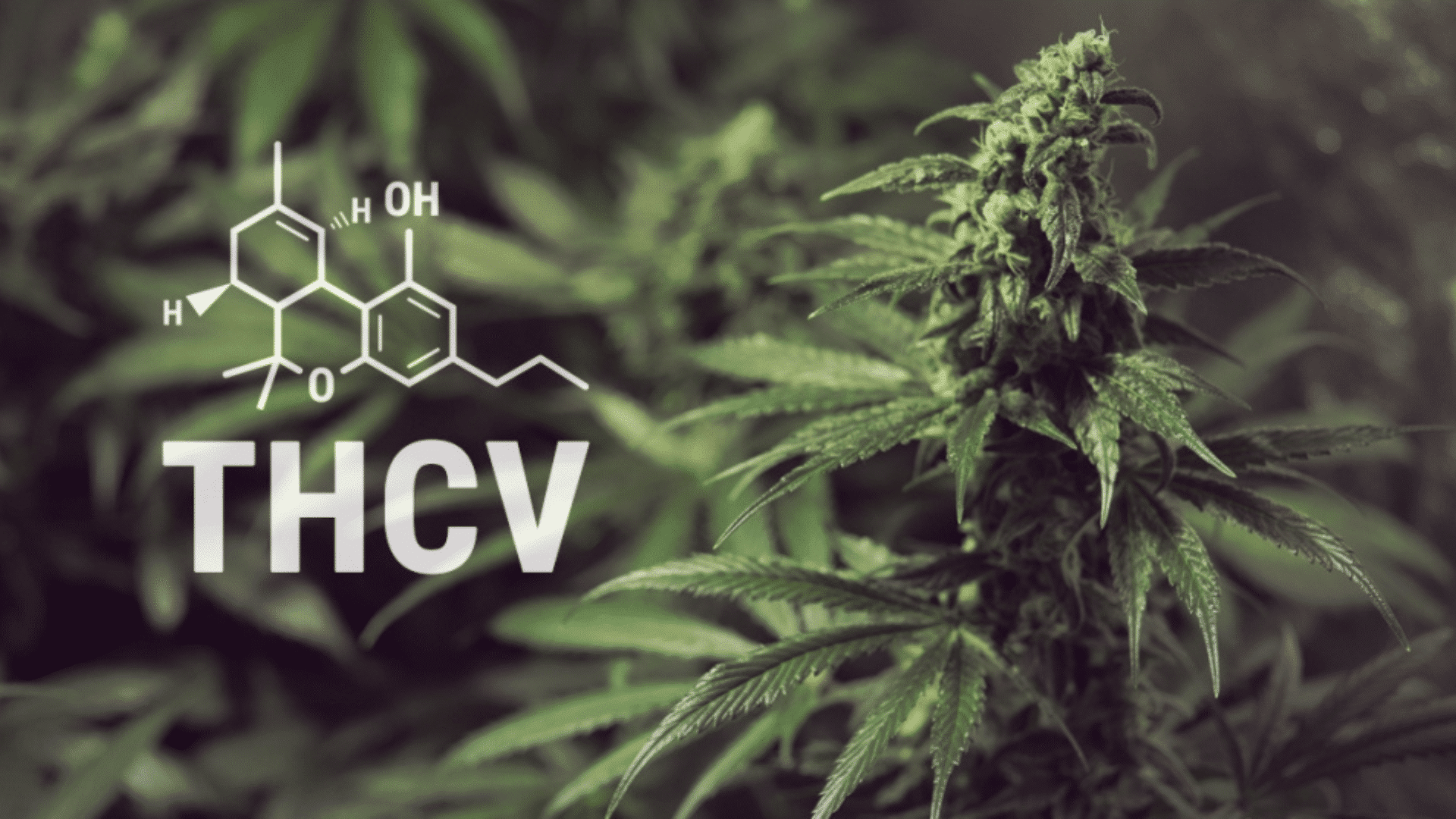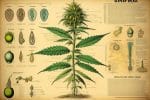
The world of cannabinoids is vast, with an estimated one hundred different molecules, of which cannabidiol(CBD) and tetrahydrocannabinol(THC) are the best known. CBD, famous for its calming effects, is fully legal, while THC, known for its psychotropic effects, is illegal in the majority of European countries, including France. As the market expands, new cannabinoids are discovered by the public, presenting varied but always intriguing effects. Today, we turn our attention to tetrahydrocannabivarin, more commonly known as THCV. Several questions arise: What is THCV? What are its effects? Is it possible to use it, and if so, for what applications? We answer these questions now at Lordofcbd.fr.
Tetrahydrocannabivarin: What do we know about THCV?
THCV is a cannabinoid naturally present in hemp(cannabis sativa).
The structure of THCV is quite similar to that of THC. Like many other cannabinoids, it is found in trace form in most varieties of cannabis, both legal and illegal. This is of no major importance, as THC-V is not a toxic molecule at low doses. However, at higher doses, its effects approach those of THC.
Not all cannabis strains contain the same amount of THCV. Higher amounts of tetrahydrocannabivarin are found in Cannabis Sativa, particularly in certain strains originating from Africa.
Ever since cannabiculture began (several millennia ago), growers have sought to select plants with the most attractive properties, without always knowing which cannabinoids were responsible. Such is the case with THC-V, whose content has been encouraged, more or less intentionally, by certain growers during the hybridization of certain strains.
Without a laboratory analysis of a cannabis plant and its effects, is it really that easy to distinguish THC from THCV?
THCV or THC: what are the differences? The THCV molecule is quite similar to that of THC. The major difference, scientifically speaking, is that THCV has a propyl (a group of three carbon atoms) instead of a pentyl (a group of five carbon atoms). This difference, though seemingly minimal, leads to significant variations in the cannabinoid's effects.
In both cases, high doses cause the cannabinoid to interact with the body, producing psychoactive effects. But the similarities end there.
In reality, THC and THCV, despite their similar names, are not derived from the same parent molecule. THC (like CBD, CBC and CBG) is derived from cannabigerolic acid(CBGA). THCV (and THCVA, its acid form) is derived from cannabigerovaric acid (CBGVA).
Let's move on from the somewhat abstract technical details to what this means in concrete terms, i.e. in terms of effects.
What are the effects of THCV? THCV is best known for its ability to reduce appetite, earning it the nickname "diet cannabinoid". This is a surprising property, as cannabis consumption is generally associated with an increase in appetite. This reputation is due to the fact that THC activates the CB1 receptors of our endocannabinoid system (ECS), known to stimulate appetite. Conversely, THCV is a CB1 receptor antagonist, meaning that it blocks these receptors and could therefore contribute to a reduction in appetite. This conclusion is supported by several studies, including one carried out in 2009, suggesting that THC-V could promote weight loss. However, these results have so far only been obtained on animals.
Another study, conducted in 2013, suggests that THCV may reduce glucose intolerance associated with obesity. The results of this study show no direct correlation between THCV consumption and reduced appetite. On the contrary, energy expenditure in mice consuming tetrahydrocannabivarin increased significantly, simultaneously improving glucose tolerance and insulin sensitivity. Although these results are still preliminary, they offer real hope for the treatment of people with diabetes. However, there is still a long way to go before definitive conclusions can be reached in humans, and potentially to determine a useful dose for diabetics.
Can THCV produce psychotropic effects?
Yes, in high doses, THC-V can produce psychotropic effects similar to those of THC. However, these two cannabinoids act very differently on the body: THC activates the CB1 receptors of the endocannabinoid system, while THC-V tends to block them. Tetrahydrocannabivarin therefore appears to block some of THC's effects, notably on speech, hunger and heart rate.
Is THCV legal?
There's still no clear answer to this question. On the one hand, THCV is not explicitly mentioned in French or European laws. So, strictly speaking, it is not prohibited. However, psychoactive molecules like THC are considered narcotics, and THCV is unquestionably psychoactive (it can produce psychotropic effects). As a result, the marketing and consumption of THCV in Europe is in a grey area. Until we know more about this cannabinoid, it's important to stress that, according to the available scientific literature, THC-V does not appear to be associated with any major side effects.
In summary, tetrahydrocannabivarin (THCV) is an interesting cannabinoid that raises many questions and offers promising prospects in terms of research and therapeutic potential. However, due to its uncertain legal status and the need for further research, caution is advised in the use and consumption of THC-V. Please feel free to consult the articles and resources available at Lordofcbd.fr to learn more about cannabinoids and their potential effects.
Would you like to buy THCV in France?
https://lordofcbd.fr/produit-categorie/thcv/
https://lordofcbd.fr/produit/cartouche-thcv-60-amnesia-600-mg/
https://lordofcbd.fr/produit/cartouche-thcv-60-gorilla-glue-600-mg/
Comments are closed












Réponse de 1 sur "THCV Tetrahydrocannabivarine, what is it? Definition, legality... in 2023"